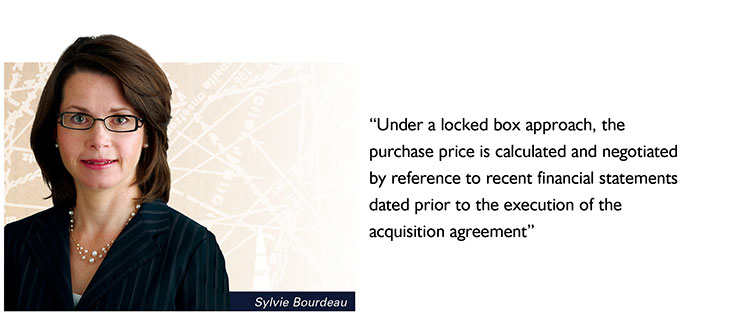October 24, 2018
On September 30, Canada, the US and Mexico agreed on a new agreement to govern trade among the three countries to replace the North American Free Trade Agreement (NAFTA). The new agreement, called the US-Mexico-Canada Agreement (USMCA), is a comprehensive trade agreement that covers a wide range of industries.
This bulletin examines those provisions of the USMCA that relate to the communications industries including telecommunications, broadcasting and digital trade. Fasken has issued another bulletin that examines other aspects of this agreement. The USMCA: A First Look At Key Contentious Issues
Apart from the specific provisions related to Super Bowl commercials, shopping channels and the term of copyright protection, the USMCA will require no substantive changes to Canada’s existing regulatory regimes that apply to the communications industry.
Telecommunications
Chapter 18 of the USMCA deals with telecommunications. It applies to any measure affecting trade in telecommunications services, including:
- any measure relating to access to and use of public telecommunications networks or services;
- any measure relating to obligations of suppliers of public telecommunications services;
- any other measure relating to public telecommunications networks or services; and
- any measure relating to the supply of value-added services.
There are detailed sections addressing each of these topics. At a high level the chapter provides for the use of public telecommunications networks to move information in each Party’s territory and across their borders, as well as for access to information in databases in the territory of any Party. Each Party may still take measures to protect the privacy of the personal data of end users, provided that the measures are neither discriminatory nor arbitrary and that they do not constitute a restriction on trade.
Each Party must ensure that suppliers of public telecommunications networks in its territory provide interconnection with public telecommunications services of another party. These obligations extend to interconnection, number portability, dialing parity and access to telephone numbers. No party may prohibit the resale of any public telecommunications service and no party shall prohibit suppliers of public telecommunications services from entering into agreements to provide roaming services. There is no specific mention of mobile virtual network operators (MVNOs) in the text.
Chapter 18 also contains provisions that are applicable to major suppliers of public telecommunications services, defined as a supplier that has the ability to materially affect the terms of participation (having regard to price and supply) in the relevant market for public telecommunications services as a result of: (a) control over essential facilities, or (b) use of its position in the market. Of particular interest is Article 18.5 which requires the Parties to ensure that that a major supplier in its territory accords suppliers of public telecommunications services of another Party treatment no less favorable than that major supplier accords in like circumstances to itself, its subsidiaries, its affiliates, or non-affiliated service suppliers regarding:
- the availability, provisioning, rates, or quality of like public telecommunications services; and
- the availability of technical interfaces necessary for interconnection.
Article 18.7 also contains a provision on resale that requires each Party to ensure that a major supplier does not impose unreasonable or discriminatory conditions or limitations on the resale of its public telecommunications services. However, a footnote to this section states that a supplier of mobile services is not a major supplier unless a Party determines that the supplier meets the definition of major supplier in 18.1.
Chapter 18 also addresses the provision of unbundled network elements, interconnection, leased circuits, co-location, access to poles, ducts, conduits and rights-of-way, and submarine cable facilities controlled by major suppliers. Article 18.12 is interesting since it extends the right to access rights-of-way owned by major suppliers of public telecommunications services to other suppliers. This may go further than section 43(5) of the Telecommunications Act in giving access to rights-of-way.
Article 18.14 applies to value-added services, defined as “telecommunications services employing computer processing applications that:
- act on the format, content, code, protocol or similar aspects of a customer’s transmitted information;
- provide a customer with additional, different or restructured information; or
- involve customer interaction with stored information;”
This article recognises the importance of value-added services to innovation, competition and consumer welfare. It states, among other things, that treatment of value-added services should not be the same as for public telecommunications services without due consideration for the legitimate public policy objectives and the technical feasibility of the requirements, and the characteristics of the value added service.
Article 18.15 endorses a policy of technology-neutrality and generally prohibits requirements that dictate technology choices.
Article 18.19 preserves the right of the Parties to implement universal service obligations in a competitively neutral, transparent and non-discriminatory manner.
There are also provisions in Articles 20 and 24 requiring regulation to be open, transparent and non-discriminatory.
Reservation I-C-7 preserves for Canada its restrictions on foreign ownership as set out in the Telecommunications Act and the Canadian Telecommunications Common Carrier Ownership and Control Regulations.
Reservation I-C-1 preserves for Canada the thresholds for review and the standards for review of direct acquisitions of control of Canadian-owned businesses, including telecommunications carriers, as set out in the Investment Canada Act.
Digital trade
Chapter 19 of the USMCA establishes each Party’s obligations with respect to the rules applied to digital trade among the three countries. The Chapter defines “digital products” as “a computer program, text, video, image, sound recording or other product that is digitally encoded, produced for commercial sale or distribution, and that can be transmitted electronically”.
This very broad definition would capture popular streaming music services, over-the-top subscription video services, user generated content platforms and e-book retailers.
The agreement distinguishes between an “interactive computer service”, which is a service that enables electronic access to a computer server and would include cable and telecom undertakings that provide retail internet access services, and an “information content provider”, which is an entity that creates or develops information provided through the internet, including online video and music services.
Article 19.17(2) prohibits the parties from adopting or maintaining measures that treat a supplier or user of an interactive computer service as an information content provider in determining liability related to information stored, processed, transmitted, distributed or made available by the service, except to the extent the supplier has created or developed the information. However, this prohibition on liability does not apply to any measure pertaining to intellectual property including measures addressing liability for intellectual property infringement.
Under article 19.3, the parties are prohibited from imposing customs duties fees, or other charges in connection with the importation or exportation of digital products transmitted electronically. This provision does not, however, preclude a party from imposing internal taxes, fees or other charges on digital products, provided that those taxes, fees or charges are imposed in a manner consistent with the Agreement. Also, under Article 19.4, the parties are required to accord no less favorable treatment “to digital products created, produced, published, contracted for, commissioned or first made available on commercial terms in the territory of another Party… than it accords to other like digital products”.
Given the national treatment principle embedded in these digital trade provisions, it would appear Canada could impose taxes, fees or other charges on digital products imported into Canada electronically, provided that the same taxes, fees or charges are imposed on Canadian digital products.
Copyright and related rights
Section H of the USMCA establishes requirements with respect to copyright and related rights. Despite the potential for the US to try to impose new obligations on Canada that would require significant changes to our copyright legislation, the final agreement will have limited effect.
The majority of the copyright provisions replicate obligations that are already incorporated into existing international treaties including the WIPO Copyright Treaty and the WIPO Performances and Phonograms Treaty. Canada ratified both of these treaties when Parliament passed the Copyright Modernisation Act in 2012.
Article 20 H.7 does require a terms of copyright protection in works of life of the author plus 70 years, which is longer than the existing terms of protection in Canada of life of the author plus 50 years. The Canadian government had already signalled its willingness to agree to term extension during the negotiations of the Trans Pacific Partnership.
Article 20.J.11(3) imposes an obligation on parties to implement a “notice and takedown” regime pursuant to which ISPs, in order to qualify for limitations on liability (referred to as safe harbours), will disable access to allegedly infringing material residing on their networks or systems.
Article 20.J.11(6)(a) requires the Parties to impose on ISPs an obligation to adopt and implement a policy that provides for the termination of accounts of repeat infringers.
Canada’s copyright legislation does not provide for a notice and takedown regime or a requirement to terminate the accounts of repeat infringers the Annex to Section J of the USMCA provides that Acticles 20.J.11(3) and 20.J.11(6) do not apply to Canada since it has implemented a “notice and notice” regime that requires notices of alleged infringement to be forwarded to subscribers.
Broadcasting
Under Chapter 32 of the USMCA, Canada has maintained the cultural industries exemption, which was originally adopted in the 1989 Canada-U.S. Free Trade Agreement. Paragraph 2 of Article 32.6 specifically states that the “Agreement does not apply to a measure adopted or maintained by Canada with respect to a cultural industry”. The term “cultural industry” is defined in paragraph 1 to mean persons engaged in the following activities:
- the publication, distribution, or sale of books, magazines, periodicals or newspapers in print or machine readable form but not including the sole activity of printing or typesetting any of the foregoing;
- the production, distribution, sale or exhibition of film or video recordings;
- the production, distribution, sale or exhibition of audio or video music recordings;
- the publication, distribution or sale of music in print or machine readable form; or
- radiocommunications in which the transmissions are intended for direct reception by the general public, and all radio, television and cable broadcasting undertakings and all satellite programming and broadcast network services.
In paragraph 4 of Article 32.6, the USMCA also continues to permit the U.S. and Mexico to take measures of “equivalent commercial effect” in response to any action taken by Canada to protect a cultural industry under paragraph 2.
In addition to that, however, a new provision has been added to the cultural industries exemption that might negatively impact Canada. Paragraph 3 of Article 32.6 provides that “with respect to Canadian goods, services, and content” the U.S. and Mexico “may adopt or maintain a measure that, were it adopted or maintained by Canada, would have been inconsistent with the Agreement but for paragraph 2”. This new provision appears to give the U.S. and Mexico even greater latitude to impose obligations on Canadian companies operating in the U.S. and Mexico.
In addition to Article 32.6 dealing with the cultural industries exemption, the USMCA contains two provisions that impact Canada’s broadcasting industry directly.
Both are found in Annex 15-D. The first relates to simultaneous substitution and, oddly enough, actually requires Canada to adopt a new trade restriction by requiring Canada to rescind Broadcasting Regulatory Policy CRTC 2016-334 and Broadcasting Order CRTC 2016-335, which had prohibited Canadian cable, satellite and IPTV providers from substituting the Canadian signal of the Super Bowl over that of the signal transmitted by U.S. television stations.
The second relates to U.S. teleshopping services and requires Canada now to allow these services to enter the Canadian market and be delivered by Canadian cable, satellite and IPTV providers without restriction.
Authors
 |
 |
 |
| Scott M. Prescott Partner Ottawa, ON |
Gerald (Jay) Kerr-Wilson Partner Ottawa, ON |
Laurence J.E. Dunbar Partner Ottawa, ON |



























 FASKEN
FASKEN Mark Stinson
Mark Stinson Kathleen Butterfield
Kathleen Butterfield Edmond Luke
Edmond Luke







